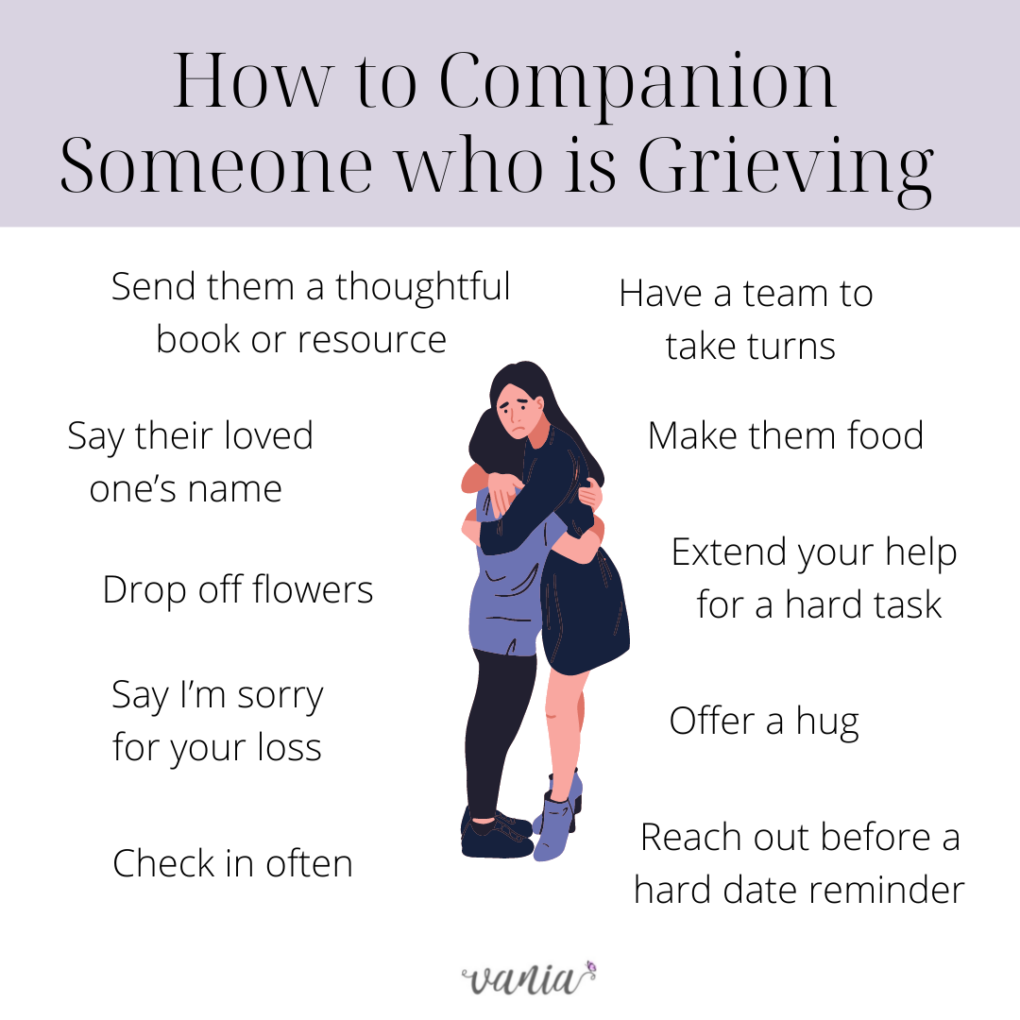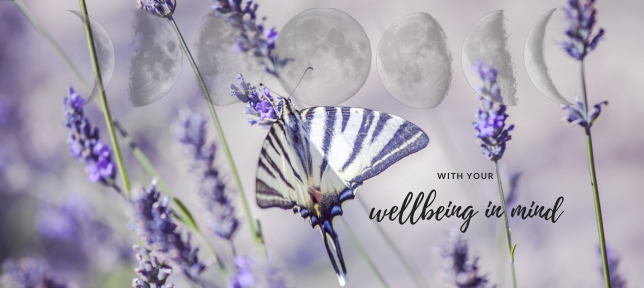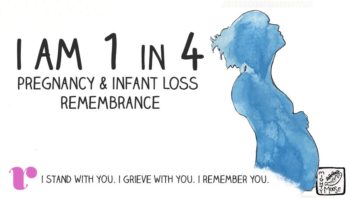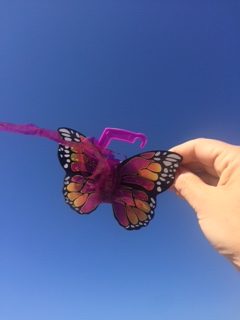Birth, life, death….the 3 inevitable stages of life and yet the dying part is kept in the shadows of our collective experience. While we know it’s coming, we are so afraid of dying – our own death and of loved ones. So many people don’t know what to do when someone they know loses someone. We are not sure what to do as we may be afraid that thinking about their beloved makes them sad. I can assure you, they are already sad – being alone in it is much worse.
Where are the casseroles that everyone gets in movies?
I think people are hoping that i have moved on and don’t need to check in. For the most part, i am moving on because i have to. But that doesn’t mean i don’t want people to ask me how i am. I can be okay and still sad. And my sadness is proportional to the new grief i am experiencing.
I’ve also noticed that people assume that since time has given space to the newness of the loss that they don’t have to ask me how i am. I still only just lost my mom. It’s still the only news that is consuming me. It doesn’t matter that i am a therapist and trained to support others with their grief. I am a human who has experiencing a significant, life-changing loss. I need care as well. We all do.
When i reflect on these last 3 months, i have noticed both what i needed and what i didn’t get. I can’t help but keep track of what disappointed me. I think that’s the learner in me, the human experience researcher. The biggest learning is that i want people to acknowledge the loss of my mom. The biggest hurt is when people (who definitely know) and have not said anything to me in person. Not saying anything hurts way more than just saying “how are you doing these days.”
Trust me on this one.
I first learned of the terms ‘companion’ and ‘holding space’ from Amy Wright Glenn, who credits Alan Wolfelt for this. I love how these terms really do capture what is needed when someone is grieving. With that in mind, here are some of my take-aways:

1) Sit with Them as They Grieve
We are not meant to carry these feelings alone. We need to know that someone is holding us. Don’t be hesitant to reach out. People who are grieving don’t always want to do it alone. In fact, as grief is based on the loss of a relationship, it is relationships that help heal. This is what it means to ‘hold space’ and companion someone.
Ask them stories about their loved one; tell them stories about your own experience (of loss, or if you knew the person); help titrate the hard feelings with stories about everyday life. Be there with them as they cry.
There is no right way to grieve. Don’t assume they’re doing okay just because time has moved on or that they are presenting as okay. There can be a cognitive dissonance when it comes to being okay. Don’t ask “how are you,“ try instead with saying “I was thinking of you.”
Being able to laugh is as important as being able to cry.
Being able to talk about it is as important as taking a break from thinking about it.
Don’t try to keep joys apart from tragedy or pain. Let them co-exist and forge ahead with feelings of joy and heartache – choose the beauty over the rain. Their sadness is a testament that what they are grieving is important to them. This may be hard for you to relate to if you haven’t experienced this type of loss. Instead think of your own meaningful relationships, or the one that they have lost. This is a reflection of what was meaningful and special to them and it is not longer.
“The way i see it, if something makes you sad when it ends, it must have been pretty wonderful when it was happening.” William to Rebecca, This is Us
2) Hug and Hold Them
Hugs are a catalyst of helping people to release the feelings of sadness. They also help grievers feel less alone. They truly help people feel comforted.
Other things that are similar to hugs are flowers, books, playlists, ready-made food, cards, donations in their name, and send texts to check in.
Social support should include rest and comfort, a break from the grief so that we can titrate feelings.
3) Companion Them
While the concepts of companioning someone and holding space for them are interconnected, the subtle shift is in the action. When we hold space, that means we are staying with them in their moment of sorrow; when we are companioning them, we are on the journey with them to heal and are more active in the path.
Martín Prechtel writes poignantly on grief work in his book from The Smell of Rain on Dust: Grief and Praise:
Remember their loved one’s name and when they died. Dates like this really matter.
In my last journal article, i shared this: “we are not meant to grieve alone. We are grieving the loss of someone we loved. We grieve what matters so need community to companion us as community is what helps us heal.”
4) Check in Often
Don’t just check in once, do it repeatedly; Put together a meal train and have a team so you can take turns.
A lot of us may assume that there’s someone else who’s doing this for the person who’s grieving. In our society right now, chances are there isn’t that person or village. Don’t assume others are doing it already – assume that it’s helpful to reach out. Just show up.
5) Take Time to Learn about Death
Because it is an inevitable part of life, we need to better prepare for its end. Think about what you would need, when you are faced with a loss. One of the things that has touched me the most is when friends and acquaintances alike have reached out with a resource that helped them in their grief. If you are looking for helpful books and resources, here are a few:
*Being Here, Human; a program for grief literacy
*Motherless Daughters and Motherless Mothers by Hope Edelman
*Julia Samuel, Grief Works
*David Kessler Finding Meaning: The 6th Stage of Grief
*It’s Okay that You’re Not Okay – the title says it all!
Orphan Wisdom
Pema Chodron’s words have been an ever-present companion
*Amy Wright Glenn’s book Holding Space: On Loving, Dying and Letting Go as well as her work at The Institute of the Study of Birth Breath Death
*Broken Open by Elizabeth Lesser



 While i have found ways to heal from
While i have found ways to heal from  We can hold space for others in so many ways too. For instance, i recently flew my favourite butterfly kite in honour of a couple i work with. They were acknowledging the anniversary of their child’s birth by flying kites with a group of family and friends. While i wasn’t there with them, i was definitely there in spirit. This can be done in so many ways – light a candle for someone else like the Wave of Light campaign, say hi to the sunrise, donate to a children’s charity of some kind in honour of a baby you never got to meet. Send your loved one a text or call them on an important anniversary or just to say you were thinking of their baby when you saw someone who would be the same age. The website
We can hold space for others in so many ways too. For instance, i recently flew my favourite butterfly kite in honour of a couple i work with. They were acknowledging the anniversary of their child’s birth by flying kites with a group of family and friends. While i wasn’t there with them, i was definitely there in spirit. This can be done in so many ways – light a candle for someone else like the Wave of Light campaign, say hi to the sunrise, donate to a children’s charity of some kind in honour of a baby you never got to meet. Send your loved one a text or call them on an important anniversary or just to say you were thinking of their baby when you saw someone who would be the same age. The website